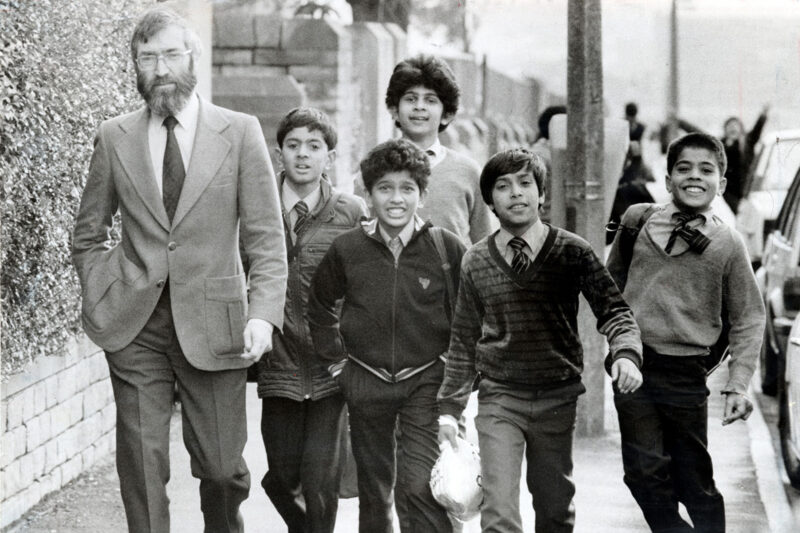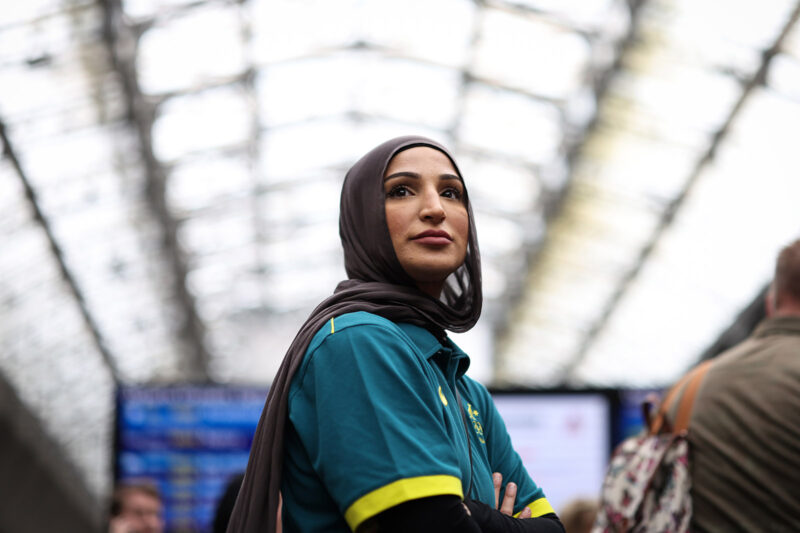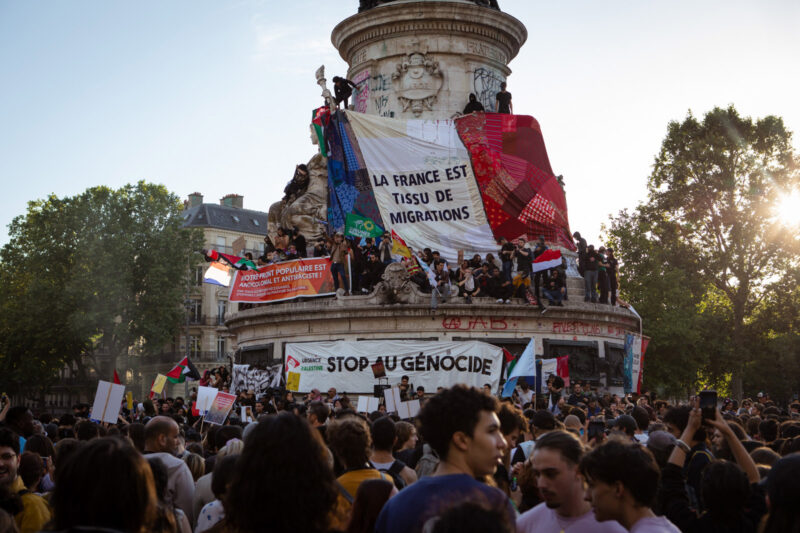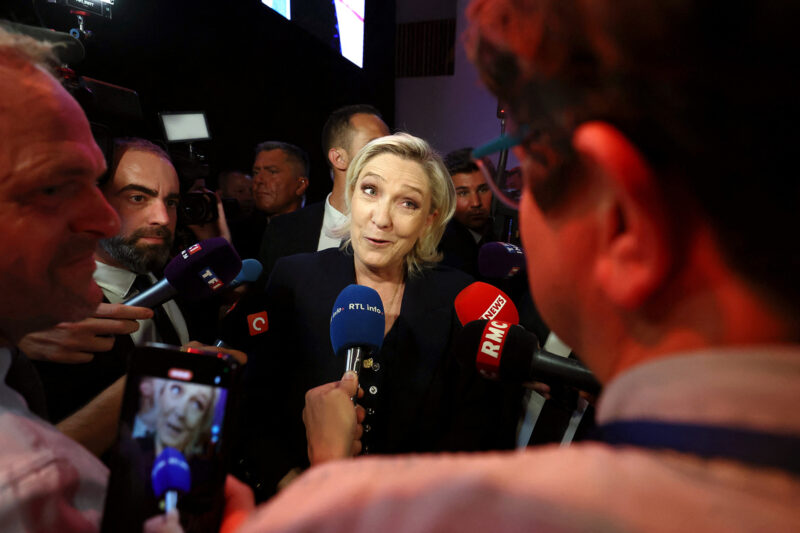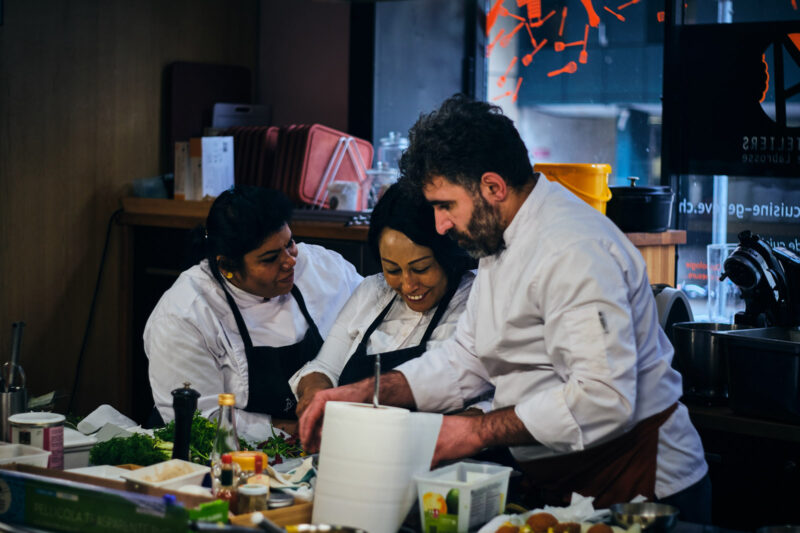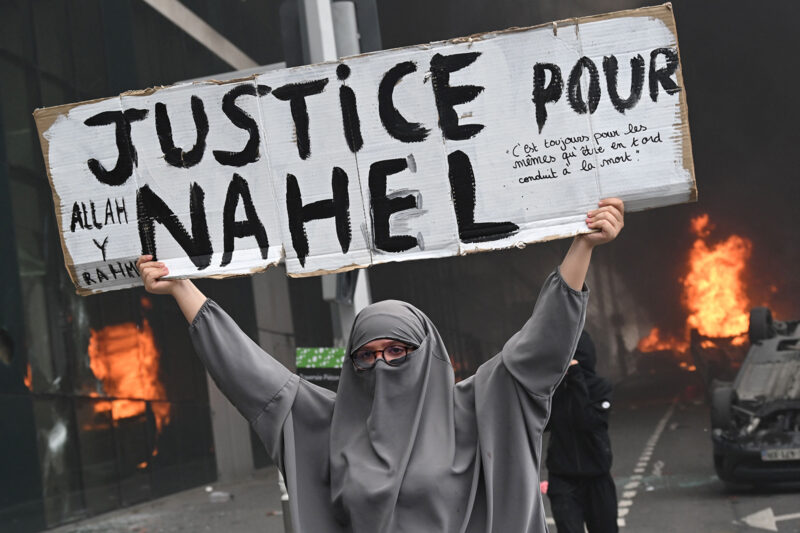Why France’s leading Muslim high school faces closure
The Lycée Averroès is about to lose all its public funding, despite exemplary grades, over claims it has broken neutrality laws
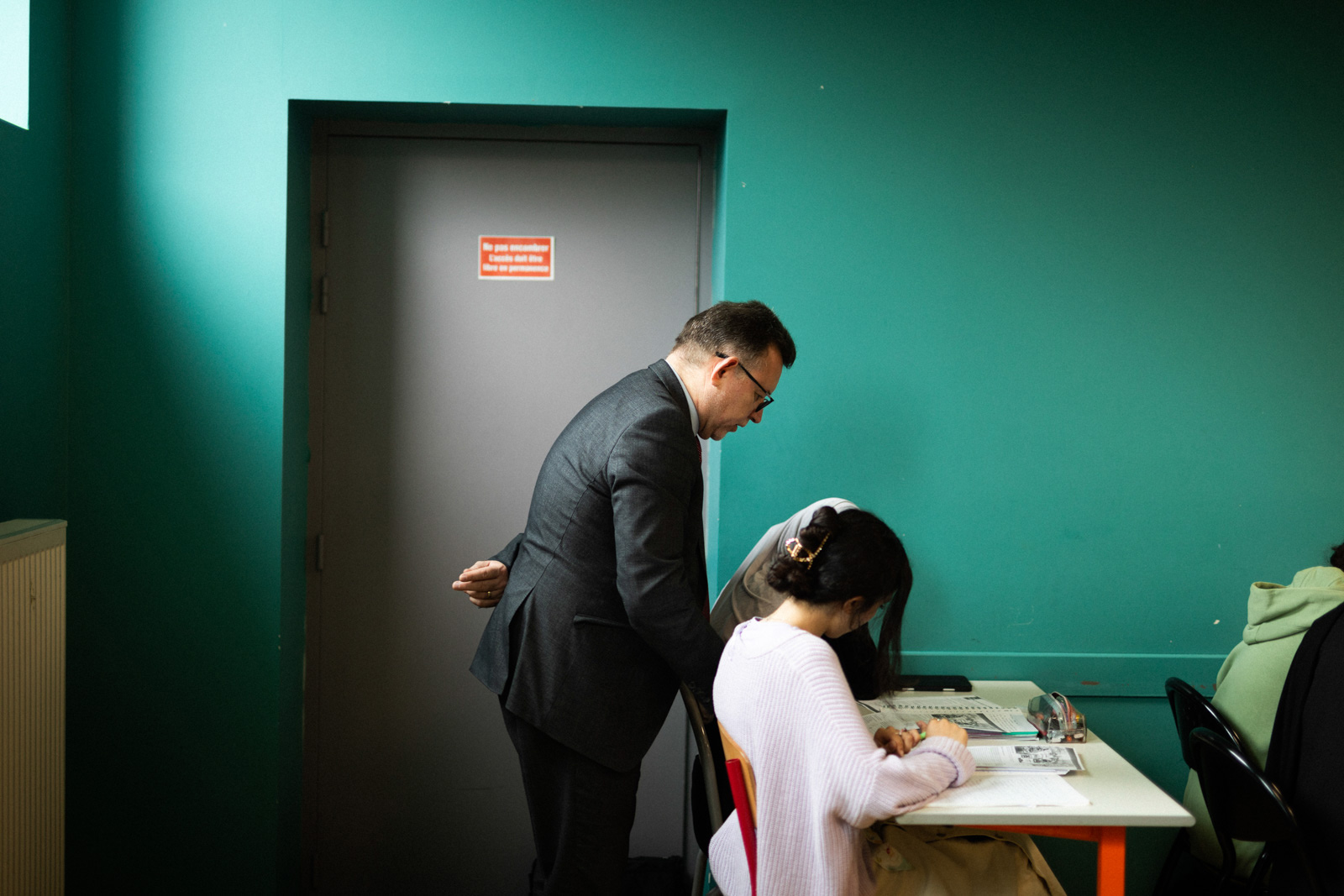
Amel Afejjay’s class at the Lycée Averroès is learning about the fall of the Berlin Wall. The atmosphere is serious — these students are taking their baccalaureate exams in a few weeks. When headmaster Éric Dufour drops by he tells them their success is important not only for themselves, but the school. “It would be good to have a 100% pass rate this year. It might help our case,” he said.
Dufour was referring to the decision by French authorities to remove Lycée Averroès’ state contract because it is suspected of fostering Islamic separatism — a preoccupation of French president Emmanuel Macron — or worse, Islamic extremism. The secondary school in the northern French city of Lille is one of only two Muslim lycées in the country to have a state contract. It was ranked France’s top high school in 2013 and last year had a 95% baccalaureate pass rate. However, from September it will lose all state funding and have to find other means to pay its 37 teachers.
In the short term, its fees — less than €1,500 a year — will need to double. This is a significant increase for a school where more than 61% of the 473 students come from low-income families. But if the new government formed after France’s upcoming elections does not reverse the decision, it will almost certainly face closure.
“It’s been such a shock for everyone: teachers, students and parents,” said Afejjay, who has taught history at the school for 20 years. “There’s no justification for it.”
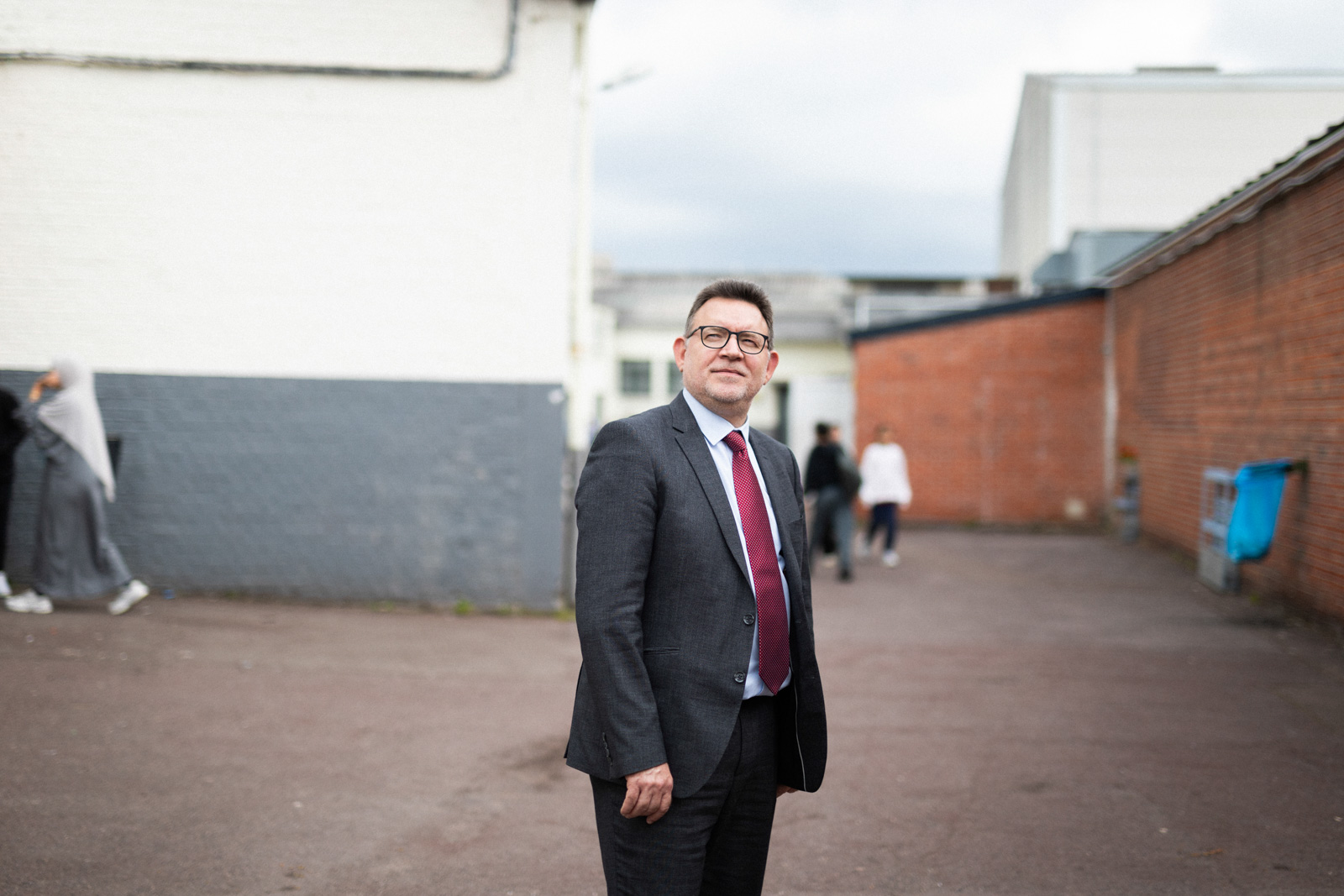
The decision in October 2023 to remove funding was made by Georges-François Leclerc, the government’s representative in the Nord region, or prefect, who cited several concerns: the inclusion on a teachers’ reading list for a non-obligatory ethics class of an annotated edition of the Forty Hadiths of Imam an-Nawawî — which calls for the death penalty for apostasy — and two donations made in 2014, one for €850,000 from the NGO Qatar Charity and a second for €300,000 from the Arab League. Dufour insisted the book was never physically on school grounds nor used by teachers. He also argued that both donations, used to finance the purchase of a school building, were legal and reported to the education authorities. The Ligue 1 football team Paris Saint-Germain, he pointed out, is also financed by Qatar.
As pupils pour out of the Lycée Averroès on a spring afternoon, the boys are dressed in the usual teenage uniform of jeans, T-shirts and trainers. Many of the girls and female teachers are wearing various head coverings or abayas — clothing banned in French state schools, where religious symbols are proscribed in the name of laicité (secularism), an often misunderstood but defining principle of the republic designed to keep religion out of the public sphere. In his office, the lyrics of La Marseillaise pinned to his wall, Dufour discusses Leclerc’s decision to remove the school’s contract.
“It’s deeply unfair. We have mixed classes, we have teachers of different religions, or atheists,” he said. “We have worked for 20 years to educate the future workers of the republic. More than 2,000 of our students have gone on to higher education and now work as doctors, journalists and engineers who pay their taxes in France and contribute to the republic. I honestly don’t know what more we can do.”
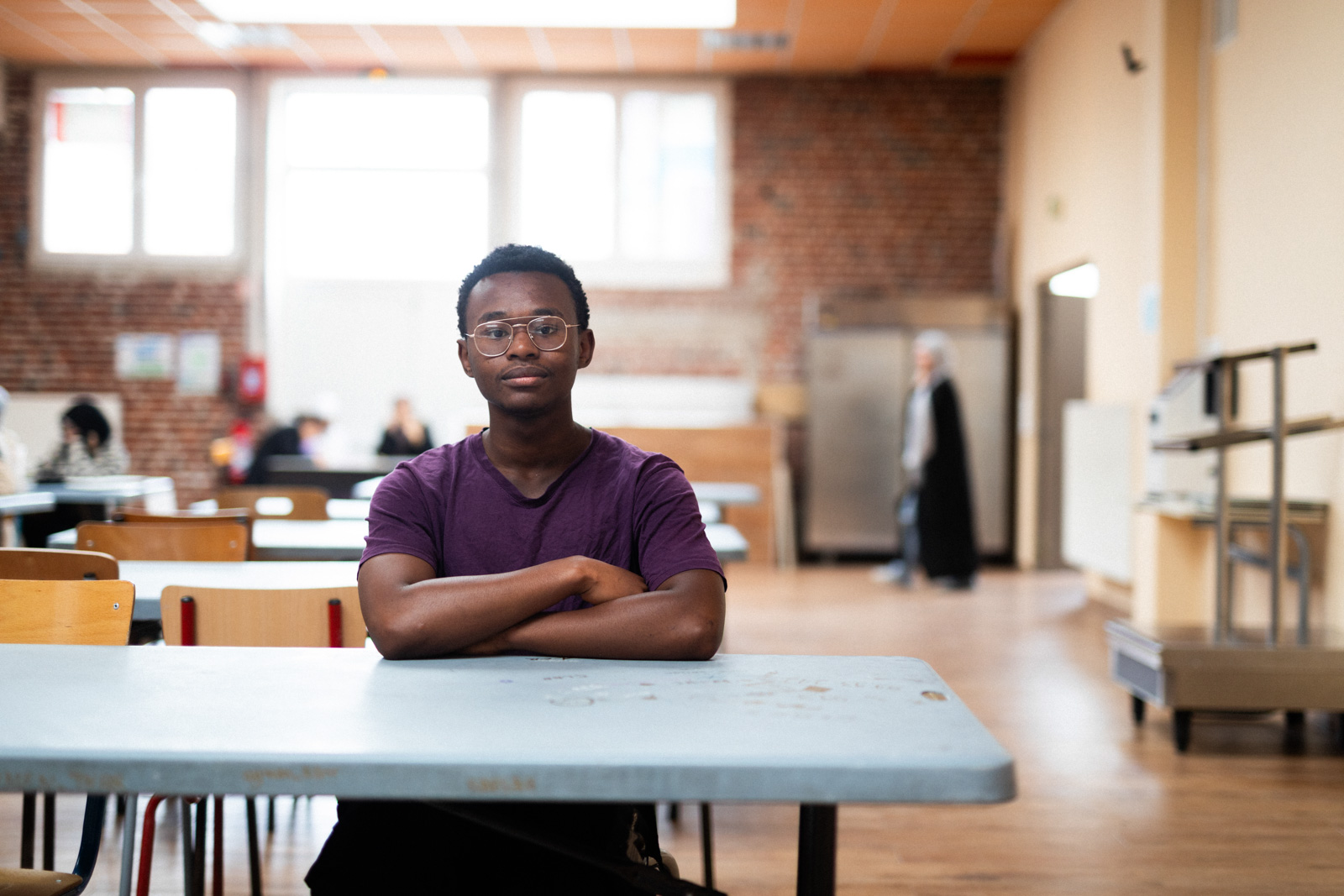
When it opened in 2003, the Lycée Averroès — named after the 12th-century Andalusian philosopher and theologian Ibn Rushd — relied on donations from the local Muslim community. In 2008, after achieving a 100% success rate in the baccalaureate, it became the first private Muslim high school to be given a state contract. This meant the state paid its teachers’ salaries, but also that its baccalaureate marks were calculated on 40% coursework assessment, 60% exam results. Pupils at private schools without a state contract are graded solely on their final exams.
In January 2015, following terrorist attacks in Paris in which 17 people were killed, Gérald Darmanin — then the local MP for mainstream conservative party Les Républicains, now Macron’s interior minister — attended a minute’s silence at the Lycée Averroès. He was joined at the vigil by Xavier Bertrand, another conservative politician and president of the local regional council. In the canteen, students held placards reading “not in my name”.
Then, in 2019, the school’s Qatari loans were raised in a book, Qatar Papers: How Doha Finances the Muslim Brotherhood in Europe, which suggested the Qatar Charity was involved in proselytising salafism in France. Four years after his symbolic visit, Bertrand blocked the regional authority’s annual €250,000 grant to Lycée Averroès — which is separate from the state funding — suspecting the school was subject to foreign interference. He has blocked the grant every year since, forcing it to take legal action every time to have it reinstated.
In the same year, two government education inspectors visited the lycée three times, speaking with directors, teachers and pupil representatives. Their report, published in 2020, is glowing. It notes that the regional authority had been informed of the Qatari donations, which were unconditional and legal, and that any concerns about its ethics classes were unfounded. It also states the lycée had been under “constant watch” since its creation in 2003 and inspections had shown it was fulfilling “the state contract concerning its teaching”.
Dufour, 56, who taught in private Catholic schools before converting to Islam 20 years ago, joined the school as a teacher in 2007, becoming its head in 2022, said Averroès is held to different standards from other French faith schools operating under state contracts. He believes the decision to remove its contract is political and a response to the growing challenge to mainstream parties from the far right in France.
Vincent Brengarth, a lawyer who has examined the Lycée Averroès case, agrees. “This is political opportunism. There is pressure from the extreme right for the next election and we are seeing politicians adopting a repressive interpretation of laicité,” Brengarth said. “The same standards are not applied to Catholic or Jewish schools even where there are clear diversions from republican values.”
In a recent high-profile case, a prestigious private Catholic school in Paris was heavily criticised by the education ministry inspectors for sexism and homophobia. However, this school has not been threatened with the removal of its contract.
Leclerc’s office declined to comment on the Lycée Averroès case. The ministry of education provided the following written response: “The failings of which the prefect of the Nord accused the school and which justified the termination of the contract are of several kinds: they concern not only the fact that the teaching content and resources do not meet all of the curriculum expectations, and that certain lessons are contrary to the values of the republic, but also problematic administrative and budgetary management and a total lack of transparency and disinterestedness in the management of the school.”
In room 13 at Lycée Averroès, a dozen final-year philosophy students are discussing transhumanism and their futures. One girl wants to be a graphic designer but most of the students are aiming to study law or psychology. In Afejjay’s history class, the majority want to be doctors. In the canteen, Dhaky, 16, wants to study medicine. “Most people here are Muslim but if you’re not, it doesn’t matter. Everyone gets along. It’s like a big family,” he said.
His friend Muhammad, 16, specialising in maths and science, wants to study astrophysics. Until last year, he was at a state school. “We’re more supported here. The teachers are trying to help us get the best grades possible so we can have excellent results,” he said. “I hear the accusations, but they are not based on facts and seem absurd. It’s just like any other lycée except it’s a Muslim lycée and that’s what seems to be the problem.”
Even so, Muhammad said he may leave Averroès at the end of term if the contract decision is not reversed, because he does not want his baccalaureate result to rest entirely on his final exam. The school’s supporters are fighting to make sure this will not be necessary.
Pierre Mathiot, director of the prestigious Sciences Po university in Lille; Roger Vicot, a local Socialist party MP; and Jean-René Lecerf, a former conservative party senator, have studied the official documents relating to the school’s removal from the state system. They offered to set up a monitoring committee to oversee the lycée, to help it keep its contract, but their offer was refused.
“This decision cannot be seen in isolation from a more general questioning of the way in which Muslims in France are regarded and their rights respected,” Mathiot wrote recently in an article for Le Monde, describing the state’s decision as “unfair” and “disproportionate”.
Vicot defends the lycée, he said, simply because it is an excellent high school. “Sixty per cent of students are scholarship holders, which is exceptional,” he said. “It has been inspected more times than all other private schools in the region put together. If it was doing something wrong or concealing something it would mean all of those inspections were done badly or unprofessionally.”
The Lycée Averroès’ legal team is seeking to overturn the state’s decision to remove its contract. The legal challenge could take months during a volatile period in French politics but, speaking before the far right’s decisive victory in the European parliamentary elections, Dufour was optimistic. “What we are doing is the absolute opposite of separatism. We are a rampart against extremism,” he said.
 Newsletter
Newsletter


